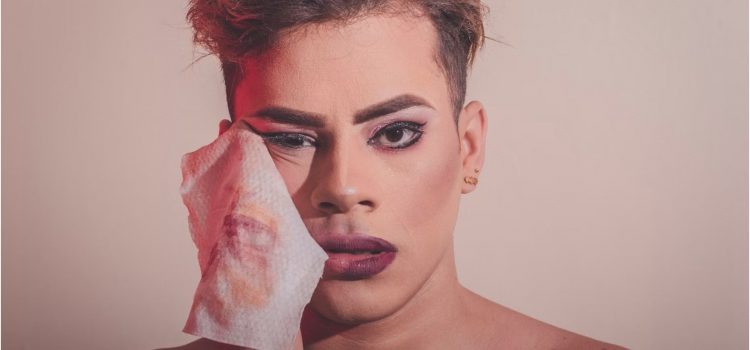
This is a free excerpt from one of Shortform’s Articles. We give you all the important information you need to know about current events and more.
Don't miss out on the whole story. Sign up for a free trial here .
What is the Tennessee drag ban? Is it unconstitutional or necessary? What are some criticisms of the ban?
Tennessee Governor Bill Lee signed a bill into law that bans drag shows in public or in front of children, which has since been temporarily blocked by a federal judge. This move has sparked controversy and raised questions about LGBTQ+ rights, artistic freedom, and child protection laws.
Read on to learn about the Tennessee drag ban and the ongoing debate surrounding the bill.
Tennessee Drag Ban Targets Drag Story Hours
Tennessee Governor Bill Lee has signed a bill into law that bans drag shows in public or in front of children, which has since been temporarily blocked by a federal judge. Now, several other states are considering similar restrictions. Tennessee’s drag ban seeks to extinguish popular “drag story hours” at which drag queens read to kids in public libraries and schools. Some conservative activists and politicians across the US argue that these events contribute to the sexualization or “grooming” of children, but proponents argue that there’s no evidence to support this concern.
Critics say Tennessee’s ban on drag is overly vague and unconstitutional, and it could be used to target transgender people—although sponsors say that’s not the intent. The passing of this legislation highlights ongoing debates surrounding LGBTQ+ rights and discrimination, freedom of expression and artistic freedom, as well as child protection laws. And some are asking why this concern around drag performance is surfacing now, when this form of entertainment has been a part of Western culture for centuries, and a relatively mainstream art form in American culture for decades.
In this article, we’ll give a brief history of drag performances, and discuss questions around the alleged sexual nature of such entertainment. Then we’ll take a look at some criticisms that have arisen in response to Tennessee’s ban on drag.
What Is Drag and Where Does It Come From?
Drag queens are performers, typically gay men, who dress up in exaggeratedly feminine clothing and makeup for the purpose of entertainment, usually dancing, singing, and comedy. Women who dress as men and entertain by imitating them are called drag kings.
Cross-dressing for theatrical performance has a rich history in Western culture, dating back at least as far as ancient Greek and Roman theater, where male actors would wear masks and costumes to portray female characters. Shakespearean performances also regularly featured male actors portraying female characters.
The modern drag queen emerged in the 1960s and 1970s, when LGBTQ communities began to form around bars and clubs in major cities throughout the US. Drag queens have been a valued part of LGBTQ culture and nightlife since that time. But drag truly solidified its place in mainstream culture with America’s best-known drag queen, RuPaul, whose reality show “RuPaul’s Drag Race,” which premiered in 2009, has set Emmy award-winning records.
Is Drag Performance Inherently Sexual?
Drag performers and advocates say that drag is not inherently sexual nor does it pose a threat to anyone. Rather, they argue that it’s a legitimate artistic expression that brings people together, entertains, and allows individuals to explore who they are. Despite common misconceptions, drag does not typically involve nudity or stripping, which are more common in the separate art of burlesque. Drag performances in nightclubs do often contain explicit language and sexually suggestive content, but that kind of content is not a part of performances geared toward children.
What Are the Concerns Around Anti-Drag Laws?
The Tennessee bill would specifically ban public “adult cabaret performance” in front of children—notably, the word “drag” does not appear in the bill. Instead, it establishes the definition of cabaret to mean adult-oriented performances, including male or female impersonators who provide entertainment that “appeals to a prurient interest.” Considering that last criterion, it’s unclear how this bill will be applied to drag story hours that include no sexual content. If drag queens reading to children don’t dress or perform in sexually provocative ways, it’s hard to say how they would be any different from anyone dressing in any costume to entertain children—for example, a female librarian dressing up as Peter Pan.
Historian Jules Gill-Peterson says laws restricting gender expression have been around in one form or another in the US for almost 150 years. In 1863, San Francisco enacted a ban on cross-dressing and masquerading, which prohibited residents from wearing clothing associated with the opposite gender in public. Most of these kinds of laws have been repealed over the years, however, on the grounds that they’re discriminatory and restrict freedom of expression.
So Tennessee’s drag ban could likewise be seen as an infringement on freedom of expression and be challenged on constitutional grounds. Free speech advocates worry that the government censoring citizens’ gender expression could be a slippery slope.
In 2021, President Biden signed the “Executive Order on Preventing and Combating Discrimination on the Basis of Gender Identity or Sexual Orientation.” This document states that “adults should be able to earn a living and pursue a vocation knowing that they will not be fired, demoted, or mistreated because of whom they go home to or because how they dress does not conform to sex-based stereotypes.” Since drag performances are a vocation, it remains to be seen how the conflict between this order and Tennessee’s bill will be resolved.

Want to fast-track your learning? With Shortform, you’ll gain insights you won't find anywhere else .
Here's what you’ll get when you sign up for Shortform :
- Complicated ideas explained in simple and concise ways
- Smart analysis that connects what you’re reading to other key concepts
- Writing with zero fluff because we know how important your time is






